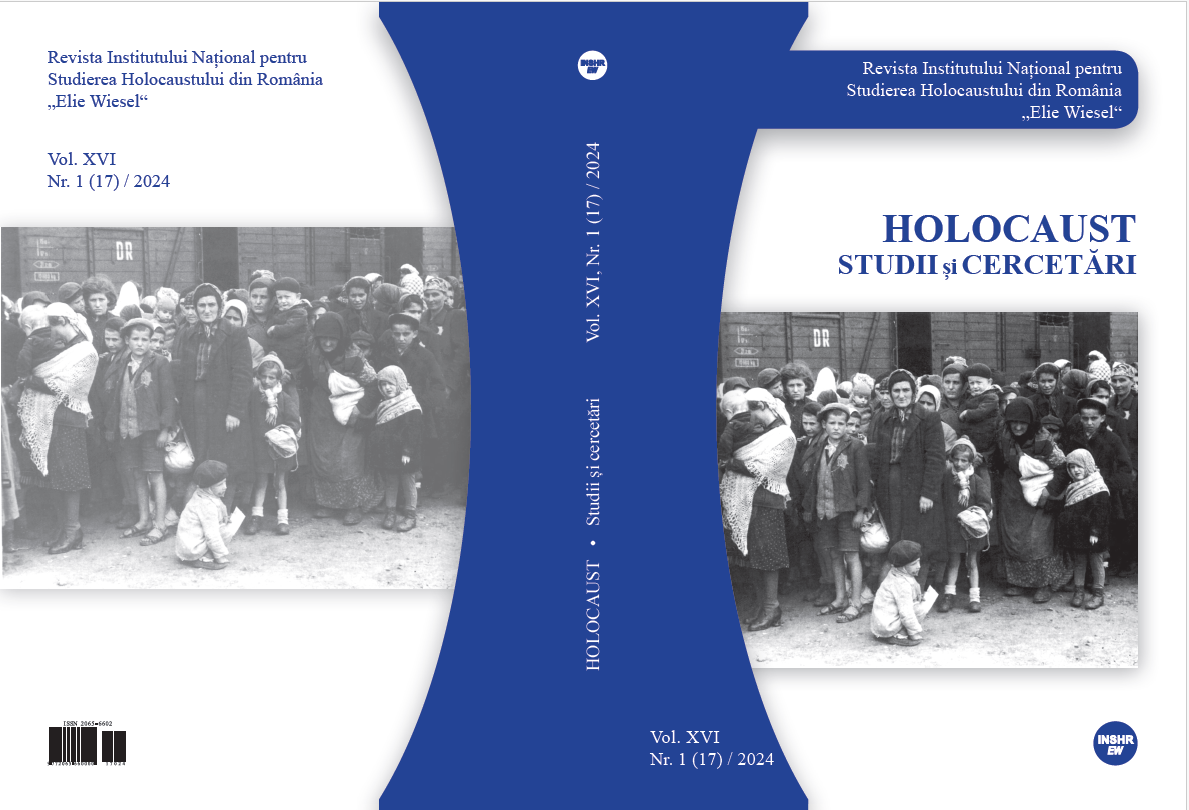“The Bolshevik” and “The Martyr”: Mapping the Romanian Far-Right’s Rehabilitation of Mircea Vulcănescu through Digital Memory Activism
“The Bolshevik” and “The Martyr”: Mapping the Romanian Far-Right’s Rehabilitation of Mircea Vulcănescu through Digital Memory Activism
Author(s): Adina MarinceaSubject(s): Media studies, Civil Society, Politics and communication, Fascism, Nazism and WW II, History of the Holocaust, Politics of History/Memory, Politics and Identity
Published by: Institutul National pentru Studierea Holocaustului din Romania ELIE WIESEL
Keywords: Holocaust; war criminals; Legionary Movement; far-right; digital memory activism;
Summary/Abstract: Despite legal condemnations of the Romanian war criminals and the existing – but poorly implemented – legal sanctions, we see an increasing rehabilitation of historical figures responsible for the Holocaust in Romania. A reframing and rewriting of history are taking place through the whitewashing of the most radical interwar fascist criminals and ideologues as “martyrs” and anti-communist “prison saints”. Antisemitic, ultranationalist ideas and discourses of the Romanian interwar far-right are being repackaged with the help of the online environment, and a reversal of the victim/perpetrator roles occurs. This is done by a network of actors, ranging from grassroots neo-legionary, Orthodox fundamentalist and ultranationalist groups, right-wing football ultras and “alternative” media up to the highest fora of representative democracy. The 2020 legislative elections marked a historical turn through the access to power of “radical return” parties and politicians reviving fascist interwar symbols, for the first time after 1989. As a result, far-right senators are livestreaming political declarations honoring war criminals such as Mircea Vulcănescu and downplaying the Holocaust, normalizing such revisionist, denialist attitudes. The current study maps the contemporary far-right network of actors who actively contribute to this process of rehabilitation, rewriting, and circulation of fascist interwar memory through digital videos, memes, blog articles, social media content, and public chats. The study employs a network analysis and a qualitative content analysis, starting from a corpus of posts extracted from 28 Romanian far-right Telegram channels. The analysis uncovers the discursive mechanisms employed in this process of far-right digital memory activism.
Journal: Holocaust. Studii şi cercetări
- Issue Year: XVI/2024
- Issue No: 17
- Page Range: 91-118
- Page Count: 28
- Language: English
- Content File-PDF

